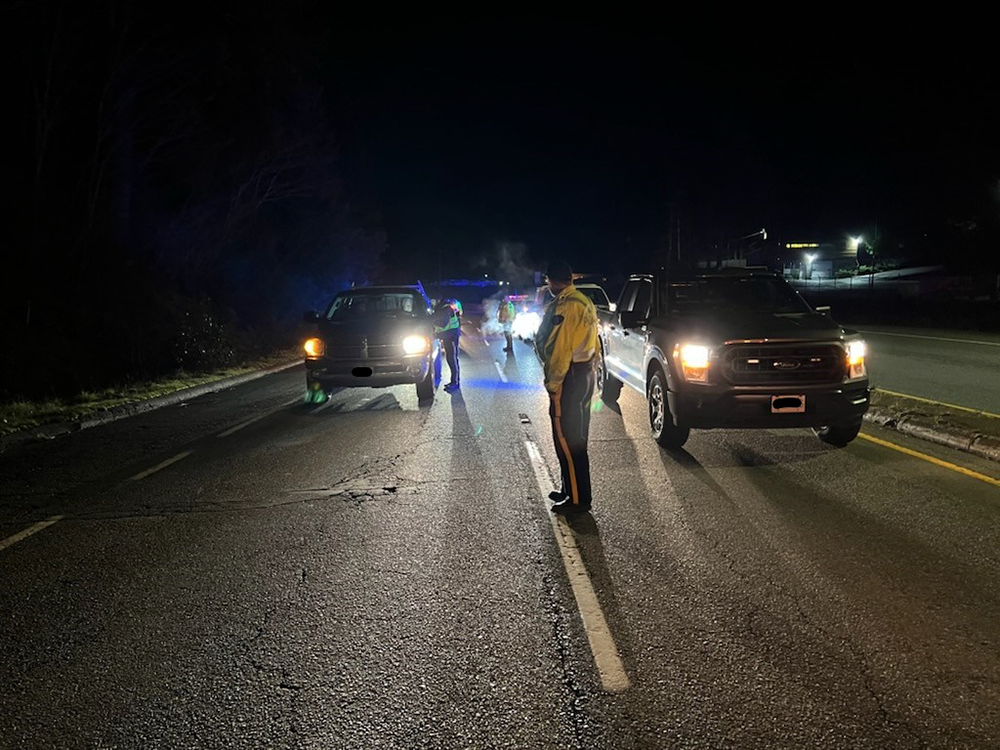The holidays are not the time for impaired driving
Tougas says due to Vancouver having more opportunities to meet people, he found many are willing to travel to Vancouver to meet a new match. Photo: Hullo
Winter holidays bring good times, celebrations and parties. But winter holidays also bring an increased amount of impaired drivers to the roads.
Although it gets said over and over to not drive while under the influence of drugs or alcohol, MADD Canada says in British Columbia an average of seven people die at the hands of impaired drivers during the holiday season.
It’s during this time that drivers might see an increase in police presence. Media Relations Officer for the Nanaimo RCMP Constable Gary O’Brien said during the holidays police will be out every weekend conducting road stops and checking for impaired drivers.
“It's a sad commentary, it really is, because there's no reason to do it's a choice. It's a conscious choice that people make to do it,” said O’Brien. “We want people to enjoy it and have time for their family and not have their lives ruined by an impaired driver.”
Charlie Grahn is a board member at MADD Metro Vancouver. He said that although impaired driving gets a lot more attention during the holidays, it is still a problem throughout the year.
“On average, between December 1 and the end of the first week of January, we lose on average seven people in the province of British Columbia at the hands of impaired drivers,” said Grahn “.In any other month, the number is around five.”
Grahn also said that impaired driving has resulted in significant deaths over the years.
“I think Impaired driving is the most stealthy and prolific serial killer in the history of British Columbia. Since 1980, more than 4000 people have lost at the hands of impaired drivers, and one-third of those people we have lost have been the impaired drivers themselves.”
To combat this, MADD has several campaigns to encourage people to not drive impaired, including their red ribbon campaign which they run during the winter months.
“And the purpose of these events is to encourage the 95 per cent of the public that already does the right thing 99 per cent of the time to do it 100 per cent of the time and at the same time those other 5 per cent, those people who are incorrigible,” said Grahn. “We need to take them off the road before they have the opportunity to harm us.”
Grahn said that the avenge number of impaired driver deaths has gone down as organizations like MADD speak to youth about the dangers of impaired driving and police have access to better resources and strong laws to confront impaired drivers.
“Between December first until the end of the first week of January, 15 years ago, we would have expected to lose 14 people. It's it's less than half of that now,” said Grahn.
Grahn said although it seems like everyone has an understanding that impaired driving is not safe, people will sometimes not think about the risks that could come from it.
“Most people are doing the responsible thing. The only exception is when they lie to themselves, and say, ‘I'm gonna go to a party, I'm going to be responsible, I'm only going to have one drink or maybe two drinks, and then I'm going to go home,’ but it turns out to be a really good party,” said Grahn. “But generally, the situation has improved dramatically and my message to your listeners and others is one of optimism, not discouragement.”
As holiday parties continue into the season, O’Brien reminds people if you have any doubt about how a night could go, do not drive, and have money in case you need a taxi or call a friend.
Funding Note: This story was produced with funding support from the Local Journalism Initiative, administered by the Community Radio Fund of Canada.

